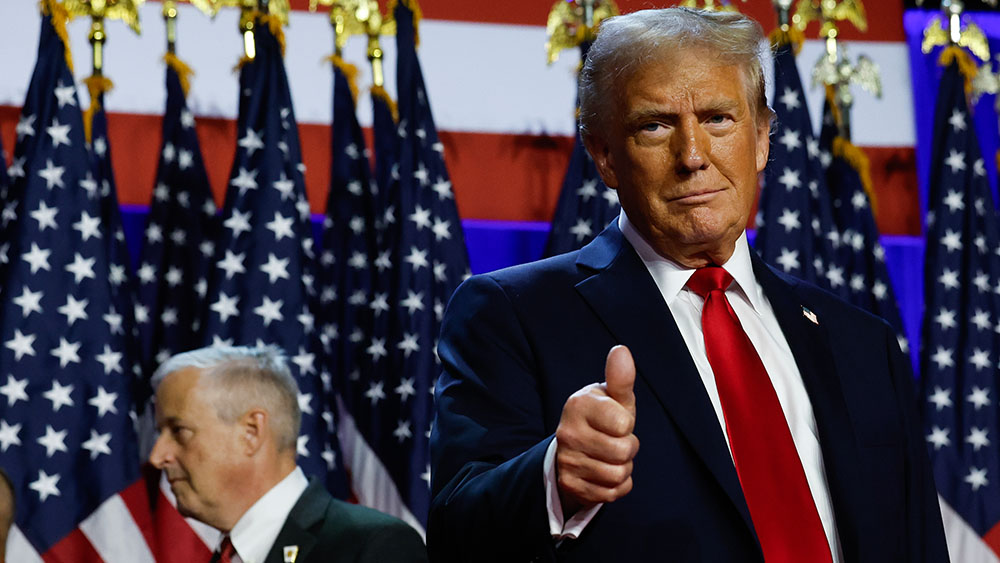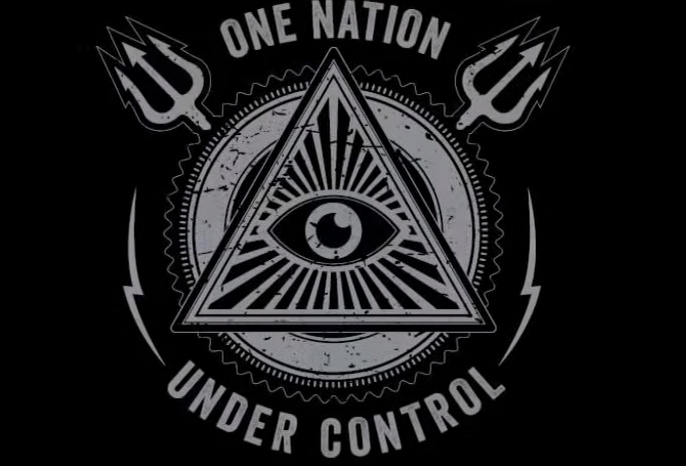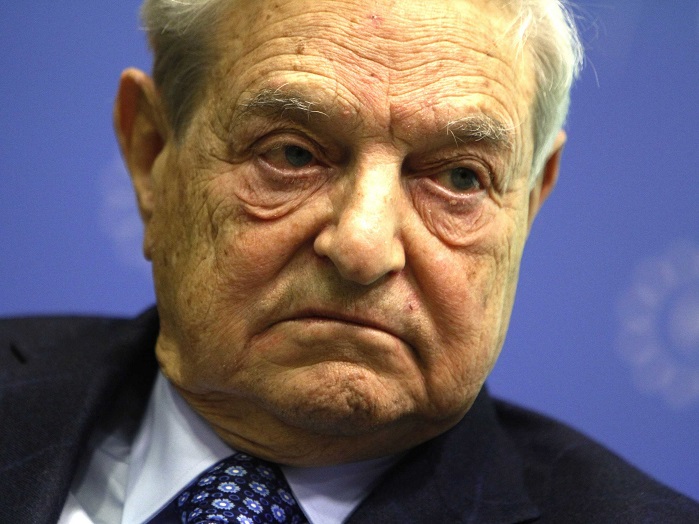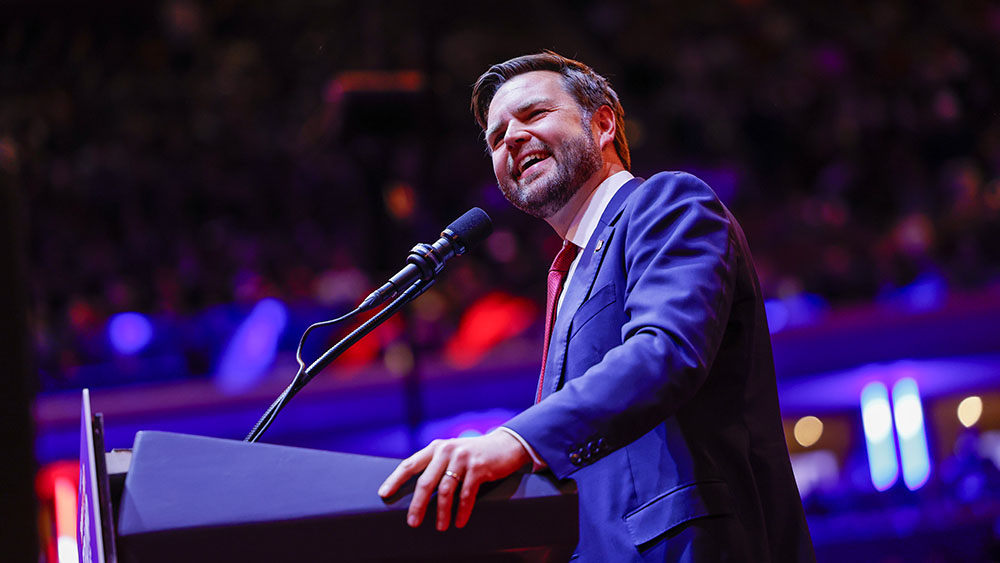 Parler
Parler Gab
Gab
- The Trump administration has launched a global campaign to combat censorship, especially in Europe, following an executive order signed by President Trump to protect free speech for American citizens.
- Vice President J.D. Vance delivered a speech at the Munich Security Conference, highlighting the erosion of free speech in Europe, citing cases like British Army veteran Adam Smith-Connor's conviction for silent prayer and Finnish Parliament member Päivi Räsänen's "hate speech" charges for posting a Bible verse.
- Vance criticized the European Union's Digital Services Act (DSA), which imposes penalties on social media companies for failing to censor "illegal content," potentially affecting free speech both in Europe and the United States.
- The effort to protect free speech has received bipartisan congressional support, with Congressman Jim Jordan, Chairman of the House Judiciary Committee, voicing concerns about the DSA's impact on American free speech.
A strong stance at the Munich Security Conference
The administration’s commitment to free speech was on full display last week when Vice President J.D. Vance delivered a powerful speech at the Munich Security Conference. Rather than focusing on traditional threats from Russia and China, Vance turned his attention to a growing menace in Europe: aggressive censorship. "Dismissing people, dismissing their concerns, or worse yet, shutting down media, shutting down elections, or shutting people out of the political process protects nothing. In fact, it is the most surefire way to destroy democracy," Vance declared. His remarks highlighted the erosion of free speech in Europe, a region that shares many fundamental values with the United States. One of the most egregious examples Vance cited was the case of British Army veteran Adam Smith-Connor. In November 2022, Smith-Connor was charged for violating a "buffer zone" outside an abortion clinic in the UK, where he had been silently praying. He was criminally convicted for this act, and his appeal will be heard in July. This case, along with others like that of Finnish Parliament member Päivi Räsänen, who has faced "hate speech" charges for posting a Bible verse, illustrates the systematic attempts to censor and control public discourse in Europe.The Digital Services Act: A threat to free speech
Vance also criticized the European Union’s Digital Services Act (DSA), which imposes heavy penalties on large social media companies for failing to censor "illegal content." This vague and subjective term can include anything from "hate speech" to "misinformation," often weaponized against disfavored religious and political views. The DSA's impact could extend beyond Europe, potentially censoring American voices as well. "America cannot and will not accept that," Vance emphatically stated, underscoring the administration’s resolve to protect free speech both domestically and internationally.Bipartisan congressional support
The Trump administration is not alone in its efforts. Congressman Jim Jordan, Chairman of the House Judiciary Committee, has been a vocal critic of the DSA. In a letter to the European Commission, Jordan expressed serious concerns about how the act’s censorship provisions affect free speech in the United States. The Judiciary Committee also held a hearing on the "Censorship-Industrial Complex," further highlighting the global nature of the issue. President Trump’s executive order has received widespread support from conservative lawmakers and free speech advocates. However, it has also faced criticism from those who argue that it could enable the spread of "misinformation" and "disinformation." Despite the controversy, the administration remains steadfast in its commitment.A broader context: The history of free speech
The importance of free speech is not a new concept. It has been a cornerstone of American democracy since the nation's founding, enshrined in the First Amendment of the Constitution. Historically, the U.S. has played a leading role in defending free speech internationally, recognizing it as a fundamental human right. The Trump administration’s efforts are a continuation of this legacy, particularly in light of recent global trends toward censorship. The rise of digital platforms has complicated the free speech landscape. While these platforms have democratized information sharing, they have also become battlegrounds for speech regulation. The Trump administration’s push to protect free speech in the digital age is a response to these new challenges, aiming to ensure that the foundational principles of American democracy are not eroded in the 21st century.A new era of free speech advocacy
The Trump administration’s commitment to combating global censorship marks a significant shift in U.S. foreign policy. By taking a strong stand against the Digital Services Act and other forms of speech regulation, the administration is fulfilling its promise to protect and promote free speech both at home and abroad. As Vice President Vance aptly put it, "America will take the lead again in ensuring the protection of free speech for Americans and worldwide." This new era of free speech advocacy is not without its challenges, but it represents a vital step in preserving the democratic values that have long defined the United States. The world is watching, and the outcome of this battle could have far-reaching implications for the future of free expression globally. Sources include: RealClearWire.com TheDailySignal.com WashingtonExaminer.comMattias Desmet’s book warns of modern, tech-driven totalitarianism
By Ramon Tomey // Share
J.D. Vance blasts British HATE SPEECH laws during Keir Starmer’s visit to Washington
By Ramon Tomey // Share
World War III is still on the table: Europe wants boots on the ground in Ukraine
By News Editors // Share
CIA insiders threaten to leak secrets if Trump fires them, exposing Deep State loyalties
By Cassie B. // Share
AI as co-scientist: How generative AI is revolutionizing scientific discovery
By Willow Tohi // Share
Governments continue to obscure COVID-19 vaccine data amid rising concerns over excess deaths
By patricklewis // Share
Tech giant Microsoft backs EXTINCTION with its support of carbon capture programs
By ramontomeydw // Share
Germany to resume arms exports to Israel despite repeated ceasefire violations
By isabelle // Share










